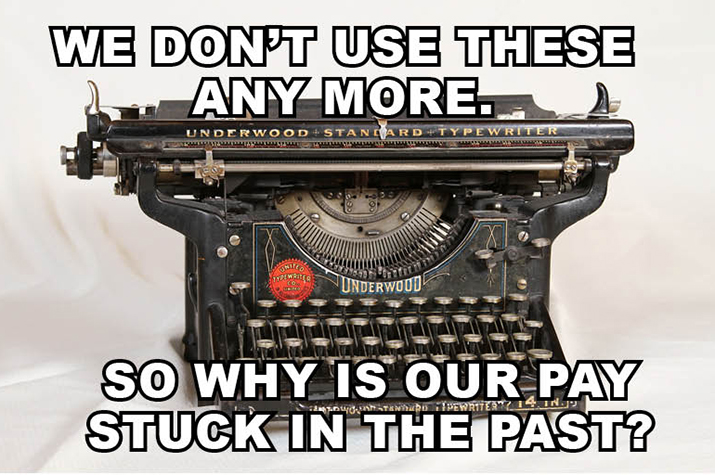New push to lift pay for digital journalists

The media industry is transforming as digital media rapidly replaces print – but working conditions for many journalists are being left behind in the analogue age.
The main industry award for journalists (the Journalists’ Published Media Award 2010) provides online-only journalists fewer working protections than those in print media.
But that could change with the Fair Work Commission to conduct a new review of the Award later this year.
MEAA will be seeking to modernise the Award to extend provisions currently covering print journalists’ hours of work, overtime, shift penalty payments and other key conditions to employees engaged by online publications.
“We are absolutely determined to secure a better deal for the growing numbers of journalists working for online-only or digital first publications,” says the director of MEAA Media, Katelin McInerney.
“There have been numerous new start-ups in this field since the print journalists Award was last updated, and the Award does not recognise the different working patterns of digital journalists in the 24-7 news cycle.
“Just because you work for a digital outlet rather than one that still publishes in ink on paper does not mean you should miss out on basic conditions like shift allowances, overtime pay or public holiday loadings.”
But to do so, MEAA will need to provide strong evidence to the Commission about digital journalists’ working arrangements.
The first step to this is a confidential survey open to all people working in online media, which will help build a picture of what life is really like for the modern digital journalist so we can improve conditions for everyone.
The results of the survey will then be incorporated into the submission that MEAA will make to the Award review in the Fair Work Commission.
“While we will seek to modernise the Award to cater for digital journalists, the best way that journalists can improve their pay and conditions is by joining their union so there is the strength in the workplace to bargain collectively in the newer online outlets,” says McInerney.